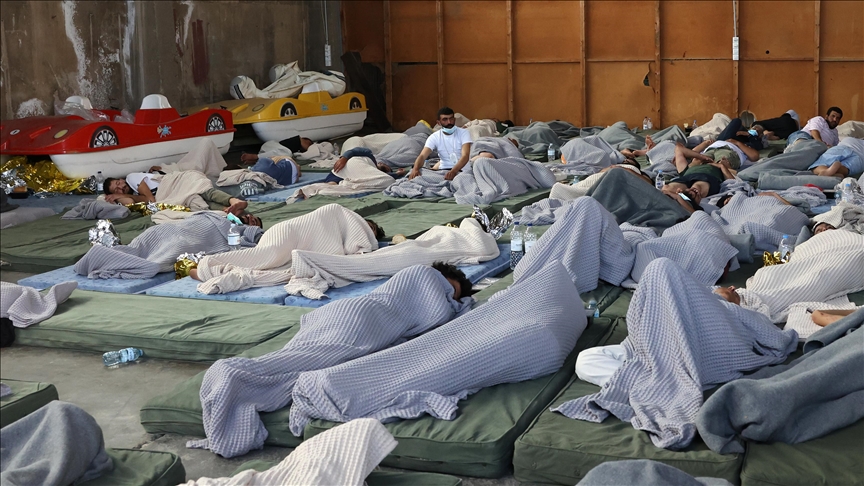- info@glopri.com
- Mon - Sat 8:00 - 18:00. Sunday CLOSE

Human trafficking stands as the new invasion of non-state entities intervening on the world stage, and constituting and imposing exceptional global insecurity, rights infringements, and economic upheavals. These networks, which mostly work secretly use the opportunity to exploit individuals, weaken their countries, and spread organized crime. Currently, according to the International Labor Organization, over 40 million individuals are forced into modern slavery with human trafficking grossing $ 150 billion annually. This is a black market that cuts across almost every nation globally. It means the smugglers exploit those who don't have any other way to survive; those who are forced to flee their homes; those who live on the edge of society.
Trafficking in persons is an organized crime that functions professionally at the criminal level employing technology, security, and social networks. Such networks leverage themselves within legal entities, twist government entities, and use financial streams for washing gains. Human trafficking, thus is not solely a matter of human rights violation, but it has social repercussions as well. It has been worsened by transnational organized crime, and sorterage, and hinders penetrating economic growth. Trafficking networks also participate in the creation of regional insecurity as most of them have affiliations with other non-state actors like terrorists and arms dealers.
Also, human traffic mafias complicate the migration problem since people try to flee wars, hunger, or persecution. This, of course, has the effect of stretching domestic capacities, aggravating social conflicts, and testing regional stability. It is therefore important that governments, Intergovernmental organizations, and Non-governmental organizations, work together in order to address the issues of human trafficking comprehensively. This concerns increasing the effectiveness of legislation and its enforcement, increasing the effectiveness of international cooperation, and improving victim assistance.
Law enforcement agencies need skills, capacity, and cooperation to achieve their goal of eliminating trafficking organizations. Governments also have to work towards reducing factors that increase vulnerability such as poverty, inequality, and conflict. A cooperative approach is vital for this major problem as trafficking networks work globally. The aspects that should be most emphasized at the level of regional organizations include the exchange of information, cooperation in investigation, and approximation of legislation, for instance, ASEAN or the European Union.
Civil society is instrumental as an advocacy, support, and awareness creation and a lobbying group for victim rights and policy change. Groups such as the Polaris Project and the International Justice Mission offer such services including hotlines and community intervention. All in all, it is impossible to eliminate human trafficking without changing people's mentality all over the world. In one way or the other, we should learn to accept each person as special and of equal value regardless of his or her nationality, race, color, or economic status. Meanwhile, we have to note that this is not as simple a problem as it may seem due to engaging with a non-state actor threat. These networks are flexible and stable and many of them have their operational base within the legal economic sphere. We need our actions to be as versatile, which involves an appropriate use of technology, people's involvement, and cooperation at the international level.
This merciless fight against human trafficking requires intense passion, combined efforts, and constant pressure on the culprits of the crime. It can only be done by continuous campaigning against these networks and for the safety of the endangered as well as the reintroduction of the basic human rights that are targeted by traffickers.
Thus, human trafficking networks are considered to create a major threat to world security, human values, and economic development. For this reason, it is essential to give an approach that would target fundamentals, illustrate the importance of legal frameworks as well as their enforcement, and stimulate international cooperation. Today there are tens, maybe hundreds of millions of people, still enslaved, and their exploitation brings billions of shady dollars to their exploiters. The human trafficking move from developing a network of trafficking, corrupt governments, and integrating into the legal economy continues to promote organized crime and civil unrest.
Therefore for human trafficking to be fought well, governments, international organizations, and civil society need to be involved. This is in relation to improving the laws, increasing the ability for enforcement, and supporting the victims. There is a need to cooperate internationally; regional organizations should enhance the sharing of information also there should be symmetrical legislation. Civil society has major roles in promoting awareness for the public, helping the victims, and campaigning for changes. Criminalizing human trafficking is not enough, it can only be done by reforming human minds and changing the perception of every human's worth. It is important to meet these, as well as other factors that create vulnerability, like poverty, inequality, and conflicts, head-on. By guaranteeing economic growth, education, and social integration, trafficking can be eliminated or at least significantly minimized. It is always important to listen and everyone should make sure that different often forgotten groups are heard. International society has made some strides, but much more needs to be done. Therefore better assembling of data more efficient reintegration programs, and measures against corruption and complicity within governments and institutions are needed. More effective solutions and technologies can challenge the supply chain of trafficking and identify victims. Eradication of this fight is a concerted effort, a colloquial call to arms, and a never-ending chorus of demanding more of the culprits. Together such networks can be dismantled, people at risk supported and simple human freedoms returned. Everyone pulls the trigger of human trafficking, and as such, its elimination should be the common goal of all nations across the world. There is a need to fight for human justice, freedom, and human dignity, in a world where human trafficking is unimaginable.